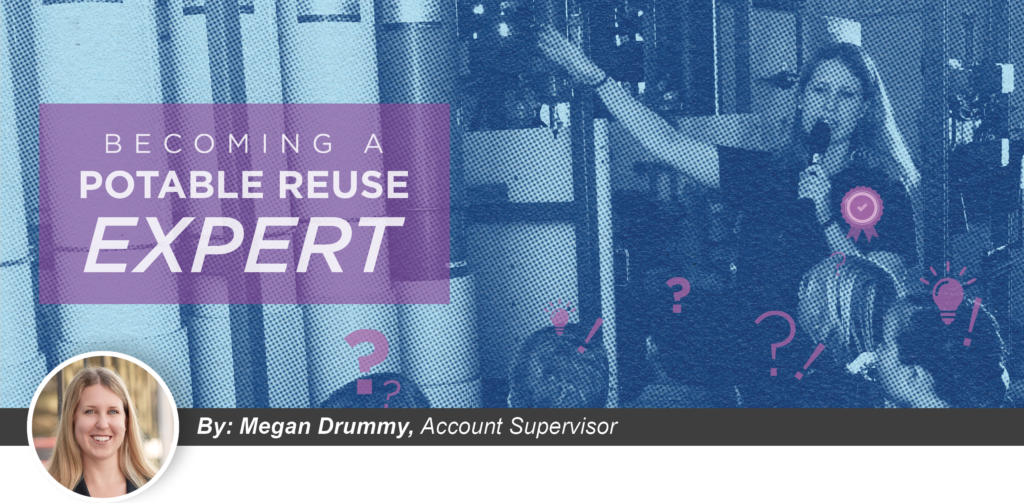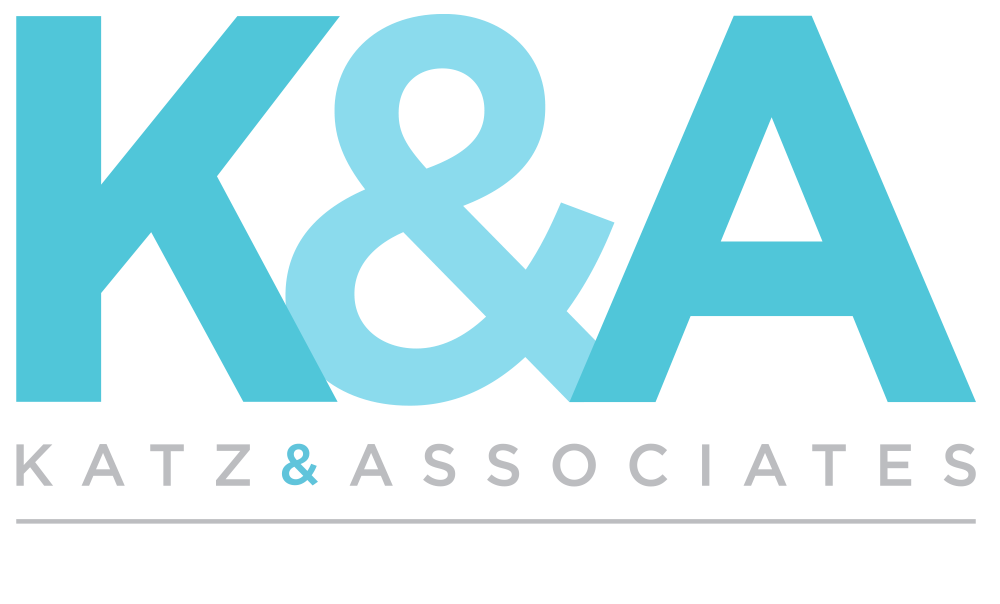10 Dec Becoming a Potable Reuse Expert

Lessons Learned by a Non-Technical Person Who Specializes in Clearly Communicating Technical Concepts to the Public
Potable reuse—a process where recycled water that originated as wastewater is cleaned for drinking using advanced technology—is, particularly in California, becoming more and more essential to ensuring that our communities have enough water for the long term. The technology has been proven and projects have been successfully launched and/or implemented throughout the U.S. and the world, but that doesn’t mean the public will fully embrace the science and the safety of potable reuse without a lot of hard work by public outreach practitioners.
Comprehensive community outreach and education programs are key to the success of potable reuse projects. This has been widely demonstrated, and I have seen it firsthand through working on outreach programs for projects for the City of San Diego, Eastern Municipal Water District, the Metropolitan Water District of Southern California and communities in Arizona, Colorado, Florida, Georgia, Maryland and more.
Potable reuse outreach is different than other outreach in that it requires an opinion and behavior conversion to gain acceptance. The use of the term “toilet to tap” to describe these projects (often by the media or project detractors) can create a negative opinion of a project long before a community has learned anything about the project. Outreach team members on a potable reuse project must have a well-developed understanding of the science, technology and project implementation process so they can clearly and effectively “translate” the information for the public.
In order to effectively communicate with the public about these projects, whether in person or through written materials, I have taken advantage of every opportunity to grow my knowledge about the water industry and complexities of the potable reuse process. Being well versed on the subject matter is what makes it possible for me to aid members of the public to understand and ultimately support a project.
Here are some tips about how I make sure I am the best “expert” I can be on a potable reuse project.
Review technical information and try to learn it.
Get on the distribution list for project materials, meeting agendas, reports, etc. and review them. Track what you think is relevant public information and see what you might need more information about in order to be able to convey it to someone who knows nothing about water. Familiarizing yourself with this information and working on your own understanding of it can help you become a “go-to” person for breaking down technical concepts and for advising your team on what technical information people want to and should know.
Get to know engineers, operators and other project team members.
Establishing good relationships with team members is just good practice and client service anyway, but I have also found that these staff members have great insights to share about their experiences working in the industry as well as ideas about how to reach the community.
Stay in regular contact with the engineering/project team.
This could involve checking in via emails and telephone to make sure you always have the latest project information and schedule, or asking to meet on specific topics when you need more information. I also recommend asking to be included and participating in technical meetings—even if there isn’t an outreach item on the agenda. Technical meetings can provide project details you didn’t know you needed and gives you a chance to ask questions about project aspects with which you aren’t familiar.
Track community questions from presentations, tours, events and social media.
Sometimes community members have questions about project aspects that you did not think to include in a fact sheet or presentation—note what these questions are and incorporate the answers into the next version. Reviewing social media and Nextdoor can offer a real world look at how the community feels about the project or where misunderstandings exist. What can you say better or what information is needed? What groups should you schedule a presentation for? Staying informed on community feedback is critical to understanding what type of information best resonates and what form it should take—whether it be an infographic, a poster, a fact sheet, etc.
Tour other treatment facilities and communicate with staff from other projects.
Sharing knowledge with other agencies helps to develop new ideas and see other perspectives. I like going on tours led by other outreach and project teams to see project explanations through the eyes of the public.
Be an avid news consumer—read/share topical articles.
Outreach staff and project teams should be nimble when responding to requests from the media and the community – keeping track of what is being written about potable reuse and reading background pieces about what is happening in the water and related industries helps with doing this. It is also very helpful to the project team if you can share the latest relevant articles with them to make sure everyone is knowledgeable on trending topics.
Attend water industry conference presentations.
More than just learning about communication, I recommend selecting a few technical topics you are less familiar with and trying to attend those sessions. This can help create context for what you do need to discuss with the community.
Write articles and white papers for industry publications.
This could involve teaming with an engineer or other project team member to write an article, or taking on a topic you want to learn more about through research. Editing papers and other submissions for the project team will also help with your understanding since you will have to think about how it will resonate with the intended audience.
Ask lots of questions.
You won’t know everything immediately, but find opportunities to talk one-on-one with team members to increase your project knowledge. Working on developing frequently asked questions documents where you need to provide answers to project-related questions can also help you identify your gaps in knowledge and determine the right types of questions to ask.
By understanding that potable reuse requires a special kind of outreach and making a continuous effort to learn as much as possible about the technology and project implementation, an outreach practitioner like me can successfully help any city or agency to provide information community members need to understand and support a project. It really makes a difference when you are invested in becoming a subject matter expert.
Megan is a Senior Account Executive in K&A’s San Diego office. She specializes in leading outreach initiatives for potable reuse projects, including current projects for the City of San Diego, Eastern Municipal Water District and the Metropolitan Water District of Southern California. Megan is a graduate of the University of California, Irvine and is a San Diego native who spends her free time attending music festivals, playing beach volleyball and competing at local trivia nights.
